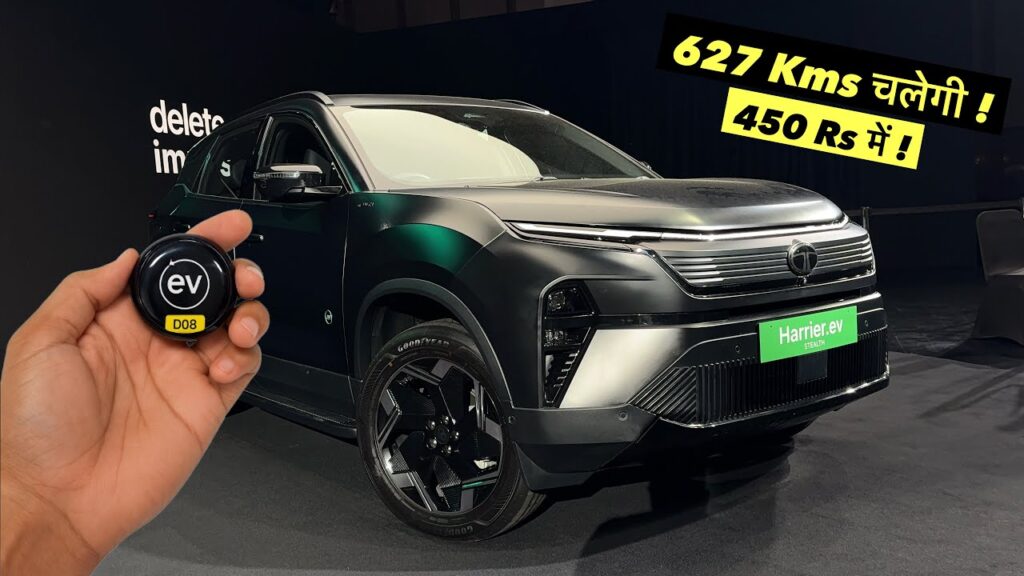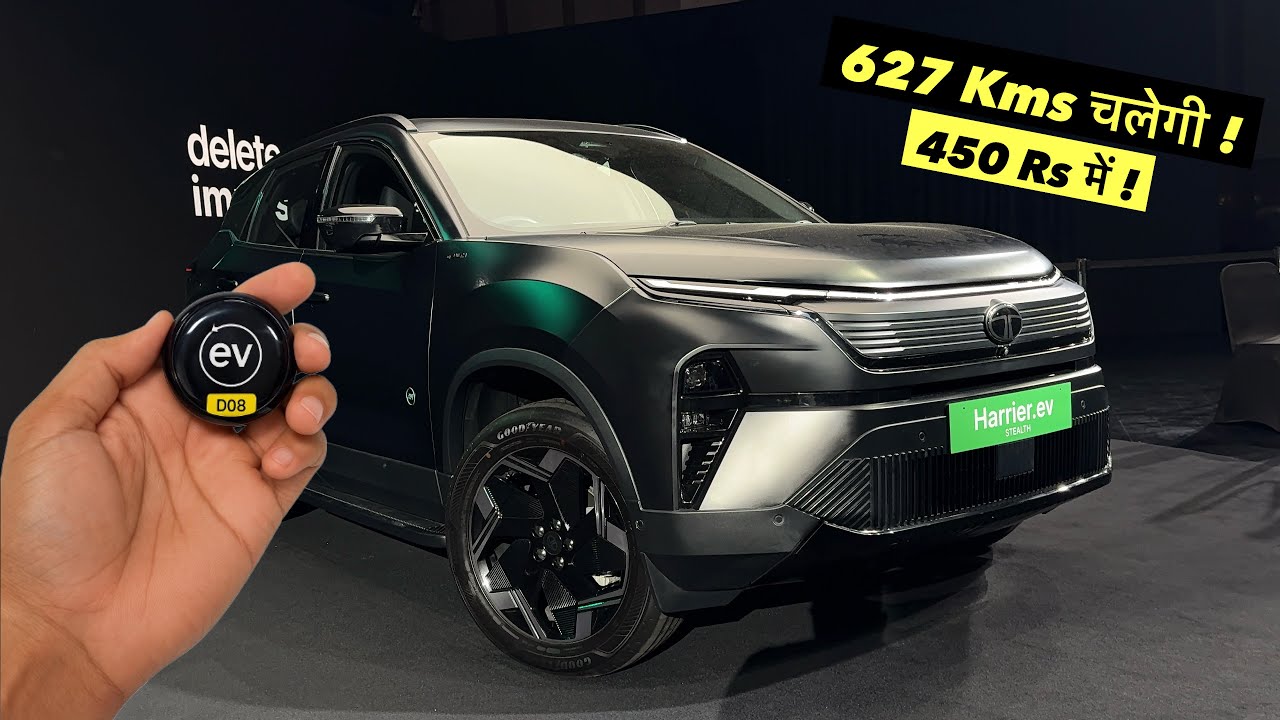Well, folks, buckle up. Because Tata Motors just dropped a bombshell on the Indian SUV market—and it’s electric. The Tata Harrier EV 2025 has officially launched, and it’s packing more punch than most petrol-guzzlers on our roads today. With a claimed range of 500 kilometers, all-wheel-drive capability, and the kind of futuristic design that makes other SUVs look like yesterday’s news, this electric beast is already turning heads—and sparking a few existential crises in the petrol camp.
So let’s get straight to the juicy bits. Is this really the end for petrol SUVs in India? Or is Tata just blowing smoke (or in this case, clean air)?
The Harrier EV Is Not Playing Around
For years, Indian EVs were considered glorified golf carts or boring budget hatchbacks with limited range and absolutely no street cred. Then came the Nexon EV, and it started to shift the narrative. But now? Tata’s playing in the big leagues. And the Harrier EV is proof.
This is not just a “green alternative.” It’s a bold, muscle-flexing statement on wheels.
With 500 kilometers of real-world range, the Harrier EV punches way above what people expected. Tata has built it on its ACTI.EV platform, optimized for electric vehicles, not some half-hearted retrofit.
Let’s break this down.
Tata Harrier EV 2025: Key Specs at a Glance
| Feature | Detail |
|---|---|
| Battery Capacity | Estimated 60–70 kWh |
| Claimed Range | ~500 km (real-world estimate) |
| Powertrain | Dual Motor (AWD) |
| Platform | Dedicated ACTI.EV architecture |
| Charging Time | Fast charging – ~1 hr (DC) |
| Expected Price Range | ₹28–32 Lakhs (Ex-Showroom) |
| Launch Date | June 2025 (India) |
That’s right. AWD. On an EV. In India. Tata didn’t just show up to the party. They kicked the door down.
Design That Actually Looks Like the Future
Let’s not pretend we all buy cars purely for what’s under the hood. Looks matter. And the Harrier EV is probably the slickest design Tata has ever put out.
- Closed grille with illuminated DRLs
- Sharp rear with LED light bar
- Futuristic wheel design
- Floating roof & edgy silhouette
The moment you see it, you know this isn’t your uncle’s diesel Harrier. It’s modern, aggressive, and bold—exactly what Indian EV design needed.
Interior? It’s Like Tata Finally Got a Design Department That Drinks Espresso
The cabin of the Harrier EV feels like Tata finally gave its designers permission to be cool.
You get:
- Dual 12.3-inch digital displays
- AI voice assistant
- Connected car tech
- Panoramic sunroof
- Plush vegan leather seats
- Wireless Android Auto & Apple CarPlay
And yes, there’s mood lighting. Because apparently, you’re not premium anymore if your car doesn’t look like a nightclub after 8 p.m.
So… Is This the End of Petrol SUVs?
Okay, let’s not get ahead of ourselves. Petrol isn’t going away tomorrow. But if Tata can deliver what they’re promising—and early reviews suggest they’re pretty darn close—then the writing’s on the wall for internal combustion.

Let’s be real:
| Reason Why Petrol Might Be in Trouble | Harrier EV’s Advantage |
|---|---|
| Rising fuel costs | No petrol = no problem |
| Emission norms tightening | Zero emissions = zero drama |
| Maintenance costs | EVs need way less maintenance |
| Urban driving needs | Instant torque + silent ride = dream combo |
| Charging infrastructure improving | Fast charging is going mainstream |
No oil changes. No fuel bills. No engine noise. And in return, you get a quiet, tech-savvy, torquey monster that turns heads.
But Here’s the Catch (Yes, There’s Always One)
Before you chuck your petrol keys in the Yamuna and run to your nearest dealership, slow down a bit.
A few things still hold EVs back in India:
- Charging infrastructure – still patchy in smaller towns.
- Price point – ₹30 lakh isn’t budget territory.
- Battery degradation over time – remains a concern in hot climates.
- Long trip anxiety – because not all dhabas have EV chargers (yet).
Tata’s trying to solve these. But we aren’t in Norway yet. We’re in Noida.
What This Means for You (Especially If You Own a Petrol SUV)
If you own a petrol SUV and are thinking, “Am I obsolete now?”, the short answer is no. But the value of petrol SUVs is going to start eroding faster as more premium EVs like the Harrier enter the market.
Think of it like this: If your SUV was a hot property two years ago, it might be yesterday’s tech in 2026.
So should you panic? Not really. But should you keep an eye on resale values and start saving for your first EV? Definitely.
Final Verdict: EV King or Just Another Prince?
Is the Tata Harrier EV 2025 a petrol-killer? Maybe not yet. But it’s absolutely the loudest wake-up call internal combustion engines have heard in years. If Tata nails the delivery and keeps the price competitive, they won’t just disrupt the EV space—they’ll start rewriting India’s SUV playbook.
So yeah, the future is electric. And right now, it’s wearing a Tata badge
